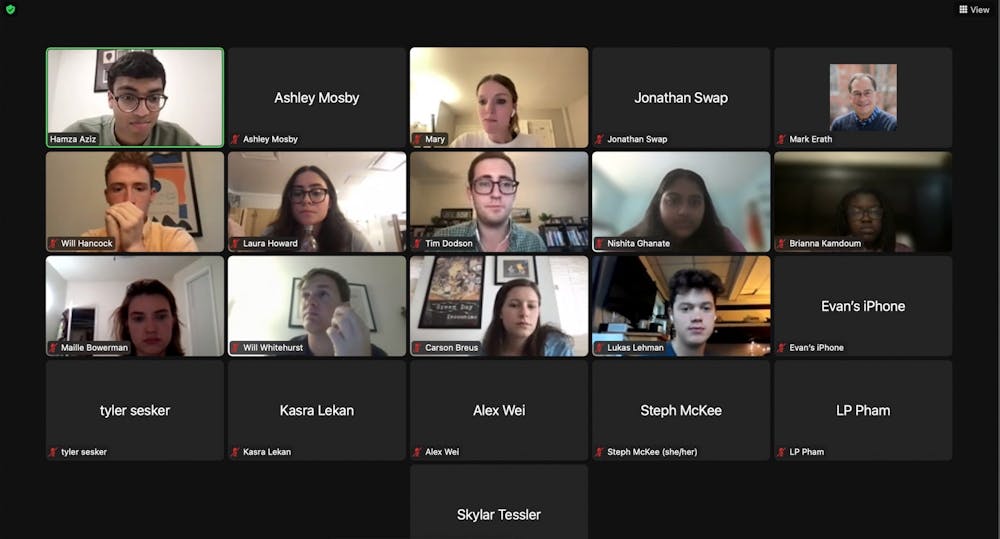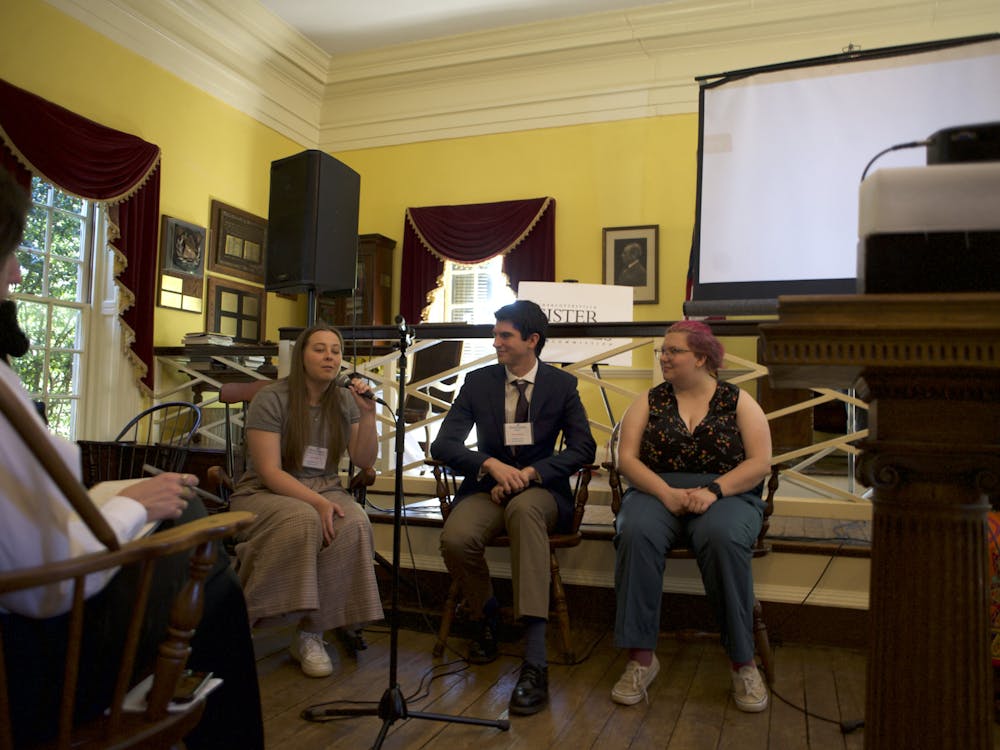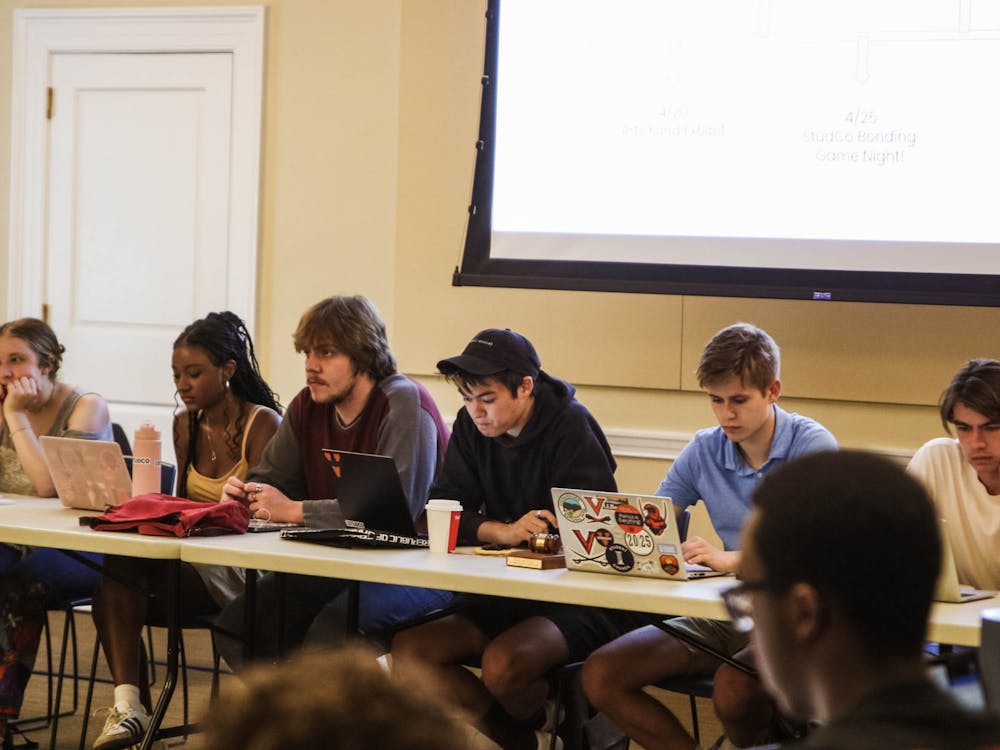The Honor Committee considered methods to increase case efficiency in its new bylaws during Sunday’s meeting following the release of the Policies and Procedures Committee’s interim report. Based on the interim report, the P&P Committee gives feedback during the Committee’s transition into a multi-sanction system, with a goal of formally passing bylaws by June 18.
The P&P Committee is a subcommittee of the Committee, tasked with critically examining common procedures and written bylaws in order to recommend changes to the Committee when necessary. P&P members are selected by the executive members of the Committee. There are 11 members on P&P, consisting of a mix of Honor support officers as well as Committee members.
In the wake of this March’s passage of the student referendum, the subcommittee took on a new responsibility, which was to draft the bylaws for the multi-sanction system — which eliminates the previous single sanction of expulsion, and installs new sanctions including but not limited to expulsion, suspension, education and amends. The system will be formally ratified July 1.
The discussion about the interim report was led by Tim Dodson, co-chair of the P&P Committee and graduate Architecture student, who began his presentation with an overview of Honor reporting procedures as well as the changes that have been recommended.
A primary change in the proposed by-laws is that the Honor investigation will not start until after the accused student chooses whether or not to file an Informed Retraction. An Informed Retraction allows a student who has been reported for an Honor offense to take responsibility for the offense in question before going to trial.
“This would hopefully make things a bit more efficient with our case processing and would reserve our investigative resources for cases where we know that it's going to go through the full Honor process,” Dodson said.
Current bylaw language dictates that investigations take place immediately after the initial report is filed. This process sometimes slows down the investigation process because officers and Committee members spend time on cases that may or may not make it to trial if a student later files an IR.
Despite vast changes to the overall sanction system, many parts of the IR have been retained, including that a student who opts for the IR will not have a possibility of being expelled. Under the new system, a student that files an IR will also not receive a permanent transcript notation.
According to Hamza Aziz, chair of the Committee and third-year College student, these changes are being made largely to not only increase case efficiency, but to also encourage reporting of incidents.
“I think this new system has more buy-in with every stakeholder, whether it's a student or a faculty member or an administrator or another committee member,” Aziz said. “So of course with a system that has more buy in, there's going to be a system that's more utilized.”
Following discussion on changes to the IR process, Dodson addressed a new threshold for the Panel for Guilt to find guilt. Under the new constitution, three-fourths of the panel — composed of five randomly selected Committee members and seven randomly selected students — would have to agree to certain parameters of evidence and intention to find a student guilty of an Honor offense.
If five-sevenths of the Panel for Guilt decided that the offense does not rise to the level of permanent sanction, permanent sanctions like expulsion and others will no longer be considered when discussing sanctioning.
Dodson explained that this possibility was added to protect students from unduly harsh sanctions and allow for evaluation on a case-by-case basis.
“We wanted to build in some sort of guardrail when the constitution was proposed,” Dodson said. “And the idea was that the student body would [also] have a say over that through the randomly selected panelist.”
Outside of discussion on new bylaws, the Committee also read responses to their Restorative Justice Survey which was sent to the student body in May to get student perspectives on the Honor system.
Out of the responses the Committee received, 68 came from the Nursing school, 36 came from Darden and 30 came from the Law school. There were two responses from the College and one each from Batten, the Medical school and the school of Data Science. According to Nishita Ghanate, chair for investigations and third-year College student, the general trend for the survey was that most students believed that rehabilitating and educating students is a goal that Honor should be working towards.
The Committee also discussed a possibility of a mentorship sanction. Law student Rep. MK O’Boyle led this discussion and used the US Naval Academy’s system as a framework that the Committee could implement. The Naval Academy’s system is very similar to that of the University’s and could be helpful with providing the framework for the education sanction.
The Naval system details weekly meetings for four to six months. In these meetings, the student and mentor explore the background behind the student’s decision to commit the offense and ways to guide the student. No formal vote was made on this topic during Sunday’s meeting.
Aziz said that overall he hopes to maximize case processing efficiency in this new multi-sanction system.
“[There are] two guiding points — A, just feedback we've gotten from every stakeholder from years and years,” Aziz said. “Then B, thinking about multi-sanction and thinking about it being a system that students and faculty and other committee members want.”
The Committee also shared executive updates. There are currently 14 active investigations, three of which are on hold until the ratification date of the new system on July 1.
The next Honor Committee will be a virtual meeting June 11, with the link available on the Honor website. The Committee will continue to meet virtually until July 1 on a biweekly basis to continue development for the new multi-sanction system.





